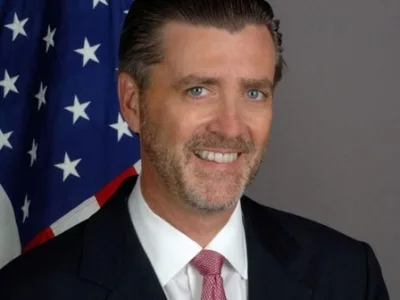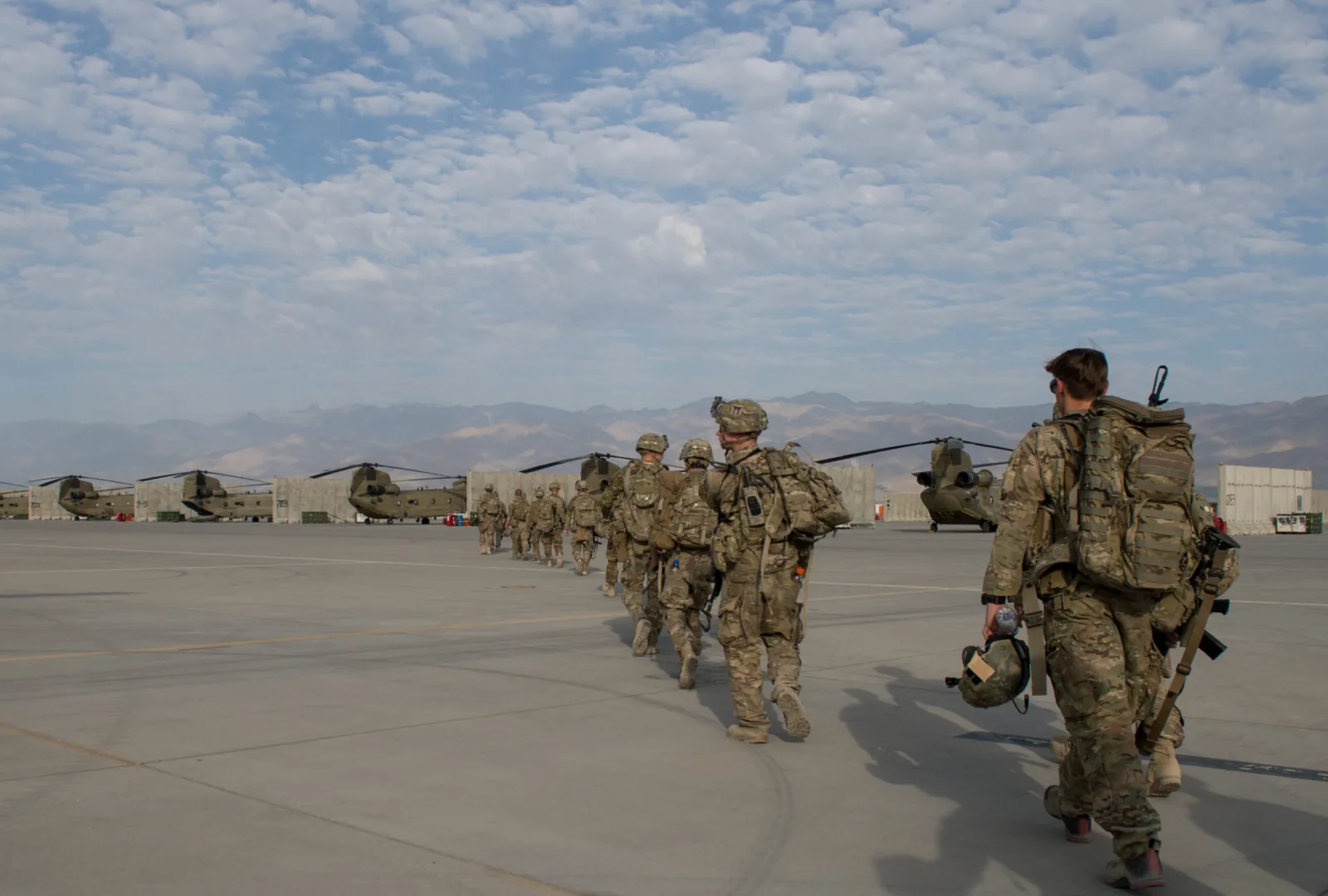Ending the Forever War: President Biden’s Decision to Withdraw U.S. Troops from Afghanistan
The Biden administration’s decision to withdraw all U.S. troops from Afghanistan by September 11 or sooner marks a historic pivot away from endless war. President Joe Biden recognized that there is no viable path for U.S. troops to militarily defeat the Taliban. Biden also rejected calls for a “robust U.S. military presence to stand as leverage” in uncertain negotiations. What led Biden to make these determinations and will he be able to keep his word given the challenges ahead? Join a discussion that delves into the calculations behind President Biden’s monumental decision and the future of U.S. engagement in Afghanistan and the region with Ambassador Richard Olson who served as U.S. Special Representative for Afghanistan and Pakistan, U.S. Ambassador to Pakistan, and director for Development and Economic Affairs at the U.S. Embassy in Kabul, Dr. Vanda Felbab-Brown, director of the Initiative on Nonstate Armed Actors at Brookings, and Dr. Jonathan Schroden, director of the Countering Threats and Challenges Program at the Center for Naval Analyses. The conversation will be moderated by QI’s Adam Weinstein.
Program
Panelists

Ambassador Richard Olson
Ambassador Richard Olson served as U.S. Ambassador to Pakistan from 2012-15 and U.S. Special Representative for Afghanistan and Pakistan (SRAP) from 2015-16. He also served as the coordinating director for Development and Economic Affairs at the U.S. Embassy Kabul, Afghanistan from 2011 to 2012. He served as U.S. Ambassador to the U.A.E. and in diplomatic missions across Latin America, Africa, the Middle East, and NATO. Ambassador Olson was awarded the Secretary of State’s Distinguished Service Award, Presidential Distinguished Service Award, Secretary of State’s Award for Public Outreach, State Department’s Superior Honor Award (thrice), and the Secretary of Defense’s Exceptional Civilian Service Award for service in Iraq. President Ashraf Ghani awarded him the medal of Wazir Akbar Khan. He currently serves as a senior advisor at the United States Institute of Peace. He received an A.B. in law and society (Honors) and history from Brown University.

Vanda Felbab-Brown
Dr. Vanda Felbab-Brown is a senior fellow in the Center for Security, Strategy, and Technology in the Foreign Policy program at Brookings. She is also the director of the Initiative on Nonstate Armed Actors and co-director of the Africa Security Initiative. She is an expert on nontraditional security threats, including insurgency and illicit economies, and has conducted extensive fieldwork in Afghanistan, South Asia, East Africa, Latin America, and other parts of the world. Last September, she published “The fate of women’s rights in Afghanistan” with Brookings President John R. Allen. She served as a senior advisor to the congressionally-mandated Afghanistan Study Group. She holds a PhD in political science from MIT.

Jonathan Schroden
Dr. Jonathan Schroden is the Director of the Center for Naval Analyses’ Countering Threats and Challenges Program, whose mission is to support U.S. government efforts to understand and counter state and non-state threats. Dr. Schroden has deployed or traveled 13 times to Afghanistan, twice in support of the Commander of the International Security Assistance Force (ISAF) and once in support of the Commander, Combined Security Transition Command – Afghanistan (CSTC-A). He served as a strategic advisor to the U.S. Central Command and the ISAF in Afghanistan. He also served as a strategic advisor to the 2nd Marine Expeditionary Force, Multi-National Force – West in Iraq. Jonathan was CNA’s first interim advisor to Marine Corps Forces Special Operations Command and directed CNA's independent review of the U.S. Marine Corps' force design and the congressionally-mandated independent assessment of special operations force structure. He served as a senior advisor to the congressionally-mandated Afghanistan Study Group. He holds a PhD from Cornell University.

Adam Weinstein (Moderator)
Adam Weinstein is a Research Fellow at the Quincy Institute. He previously worked for KPMG’s international trade practice. Adam’s current research focuses on security, trade, and rule of law in Afghanistan and Pakistan. He is a member of the American Pakistan Foundation’s Leadership Council and has presented at various conferences in Pakistan. Prior to consulting, he worked as senior law and policy analyst at the National Iranian American Council where he focused on the securitization of U.S. immigration policy and its effect on immigrant communities. He received a JD from Temple University Beasley School of Law with a concentration in international law and transitional justice. Adam served as a U.S. Marine and deployed to Afghanistan in 2012 as part of a detachment to the 2nd Air Naval Gunfire Liaison Company where he served in Uruzgan Province in support of Australia’s 2nd Commando Regiment.
